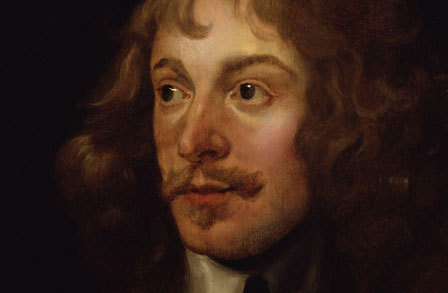Digging through a "forgotten pocket of writers"
This week's Times Literary Supplement reviews the probing Reprobates, by John Stubbs—an analysis of the generation that followed Donne and Shakespeare and Jonson. While not all of these poets made lasting names for themselves, some had great names nonetheless (see: John Suckling). In addition to Suckling, Robert Herrick and Thomas Carew have all been categorized as "cavalier poets." According to reviewer Norma Clarke:
The popularity of their much-anthologized lyrics enhanced a Cavalier myth that developed later: glamorous, living for the moment, witty, sexy. Stubbs finds something “austere” in Herrick and makes space for a more serious Suckling who might have developed had the weather of the times not been so singularly harsh.
The Suckling who emerges from this review is a glorious mix of seriousness and silliness:
Prodigal with his wealth, he was a gambler and gamester – not averse to cheating.... And he was a fluent writer, although in his influential “The Wits” or “A Sessions of the Poets”, he depicted himself as preferring sport to “the Muses”, prizing “black eyes, or a lucky hit / At bowls, above all the Trophies of Wit”. Nevertheless, on a trip to Wiltshire with Davenant in late summer 1637, glowingly imagined ... to be “as pleasant a journey as ever men had; in the height of a long peace and luxury, and in the venison season”, Suckling sent a cartload of books on ahead.
Clarke writes that Stubbs complicates the Cavalier stereotype throughout the book, even as he cites contemporary critiques of "'acting your parts of hotspur Cavaliers and disguised ding-thrifts', with 'a noyse of renegade Fidlers, Musicke-abusers' ever in their ears."
Perhaps poetry could use more ding-thrifts today.



